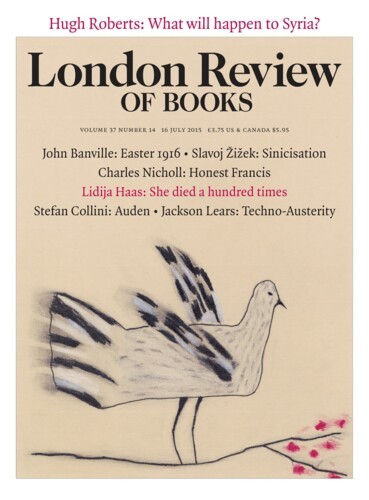Our laws are unfortunately not widely known, they are the closely guarded secret of the small group of nobles who govern us. We like to believe that these old laws are scrupulously adhered to, but it remains a vexing thing to be governed by laws one does not know. I am not thinking here of various questions of interpretation and the disadvantages that stem from only a few individuals and not the population as a whole being involved in their interpretation. These disadvantages may in any case be overstated. The laws after all are so old, centuries have worked on their interpretation, even their interpretation has in a sense become codified, and while there is surely room still for interpretation, it will be quite limited. Moreover, the nobility has no reason to bend the law against us, if only because the laws were in their favour from the very beginning, the nobility being outside the law, and that is why the laws seem to have been given exclusively into their hands. There is wisdom in this disposition – who could question the wisdom of the old laws? – but it remains vexing for the rest of us. Presumably that is not to be avoided.
Even these seeming laws can only be guessed at. It is a tradition that they exist and were entrusted to the nobility as a secret, but it is not more than an old – and by virtue of its age, a plausible – tradition, nor can it be more, because the character of the laws demands that their existence be a matter of secrecy. If we citizens have from time immemorial closely observed the actions of our nobles, if we own books written about them by our forefathers and have in a sense taken their lessons forward; if we think we can discern in these infinitely detailed chronicles certain principles that would appear to suggest the existence of a law here or there; and if we try to govern our behaviour in accordance with these most carefully sieved and ordered conclusions – all this still remains very doubtful, perhaps nothing more than a game of logical inference, because quite possibly the laws we try to guess at don’t exist at all. There is a small body of opinion that upholds this belief and that seeks to prove that if any law exists, then its form can only possibly be: the law is what the nobility do. This body of opinion sees only arbitrary acts on the part of the nobility, and disdains the folk tradition, which in its opinion has brought only slight, more or less accidental benefits, and done a great deal of serious harm, since it has given the people a false sense of security towards coming events, and left them helplessly exposed. The harm is indeed undeniable, but the large majority of our people sees its cause in the insufficient weight of tradition, and believes that much more work should be done on it, and that its materials, however vast they appear to us, are still far too small, and that centuries will have to pass before it is sufficient. This view, so pessimistic where the present is concerned, only brightens up with the belief that one day a time will come when tradition and its study will reach full term, everything will have been made clear, the law will have become the property of the people, and the nobility will have disappeared. This is not said with any animus towards the nobility, not at all and not by anyone; better to hate ourselves because we are not yet able to be found worthy of the law. And that is why this on the face of it very attractive opinion, which believes in no law as such, has remained so small, because it completely accepts the nobility and its right to exist. There is a necessary self-contradiction here: a party that would reject the nobility as well as belief in the laws would straightaway have the entire population behind it, but such a party cannot come into being, because no one dares to reject the nobility. We live on the razor’s edge. An author once put it this way: the only visible unquestionable law that has been imposed on us is the nobility, and who are we to rob ourselves of the only law we have?
Franz Kafka’s ‘The Problem of Our Laws’ – ‘Zur Frage der Gesetze’ – was translated by Michael Hofmann.
Send Letters To:
The Editor
London Review of Books,
28 Little Russell Street
London, WC1A 2HN
letters@lrb.co.uk
Please include name, address, and a telephone number.

